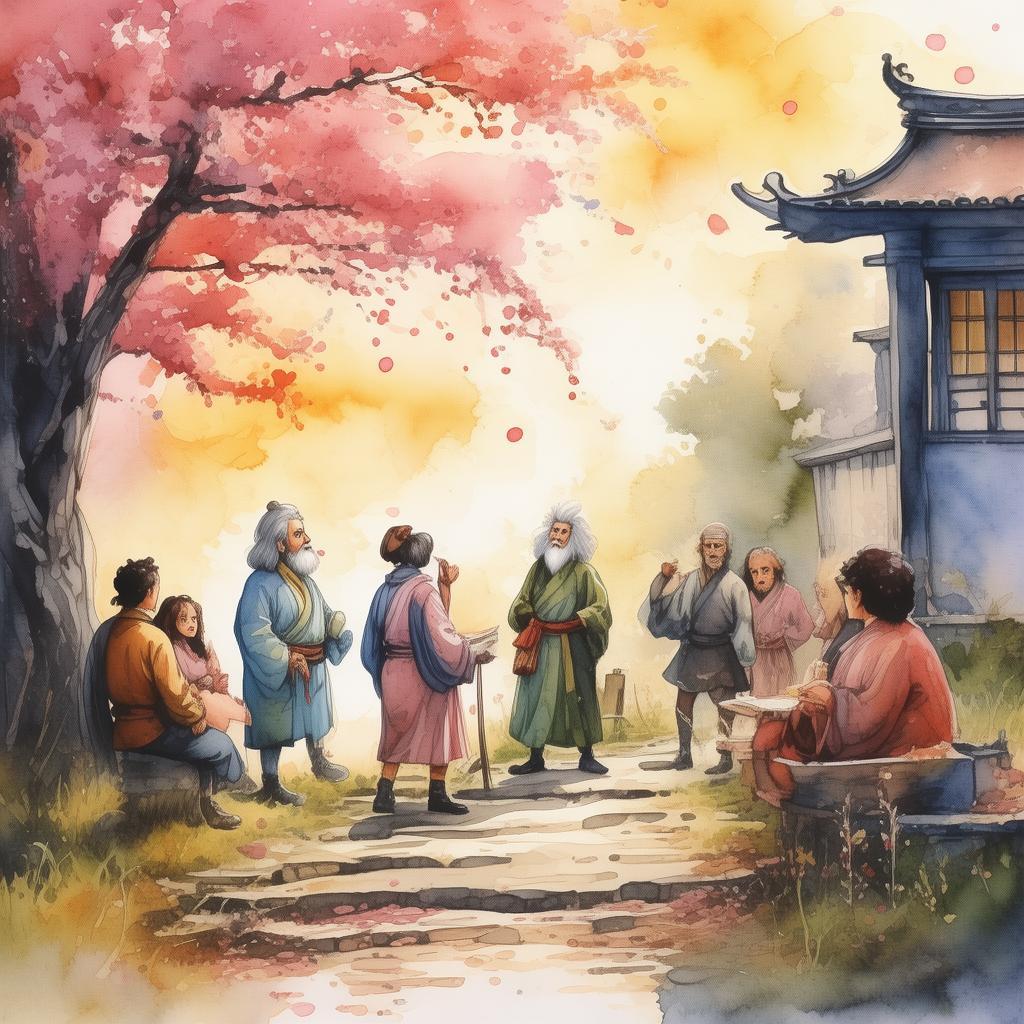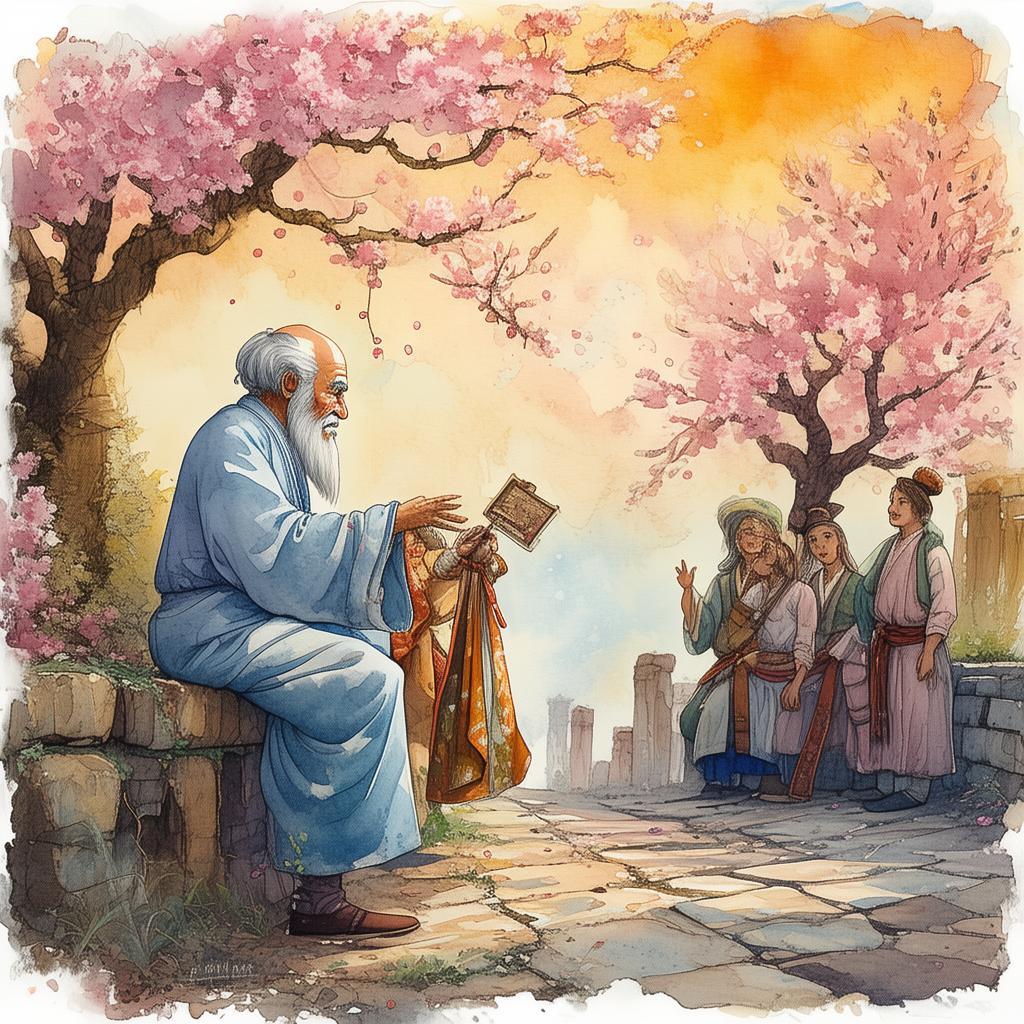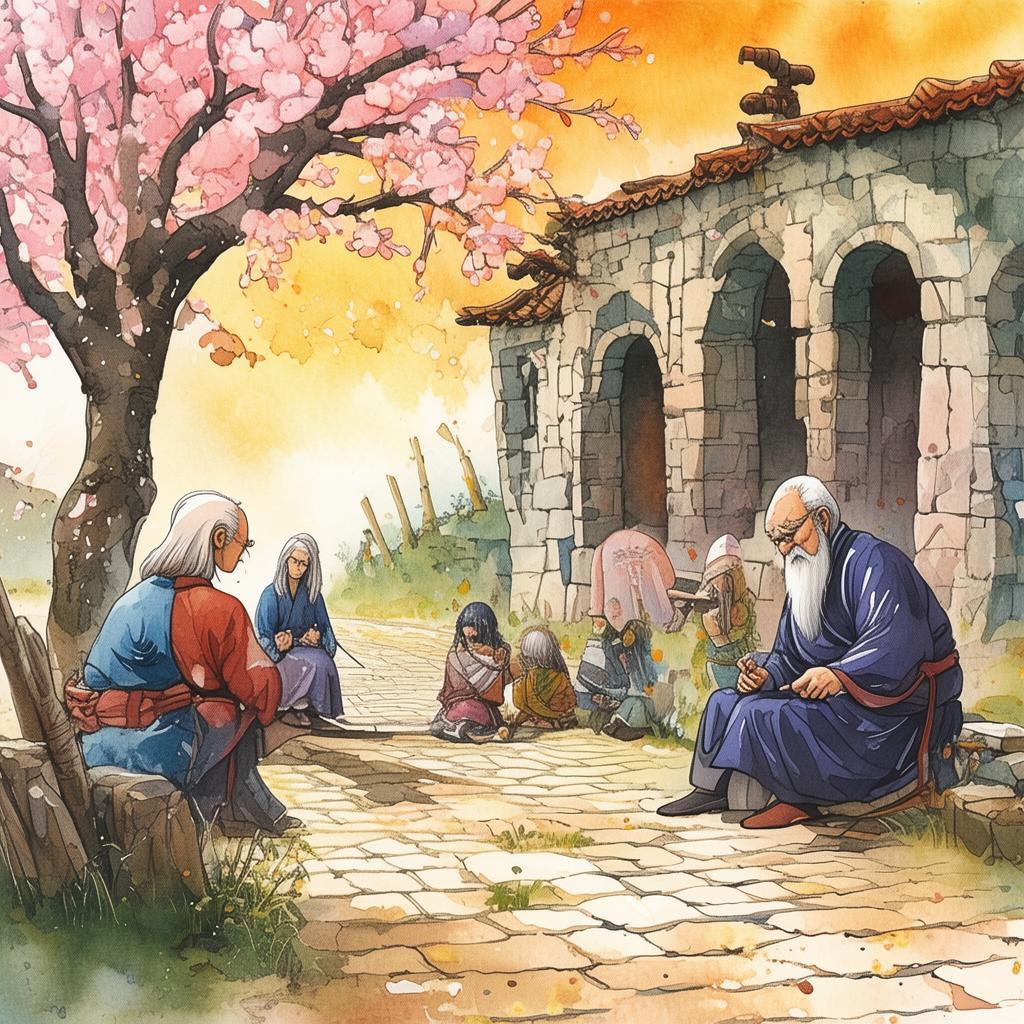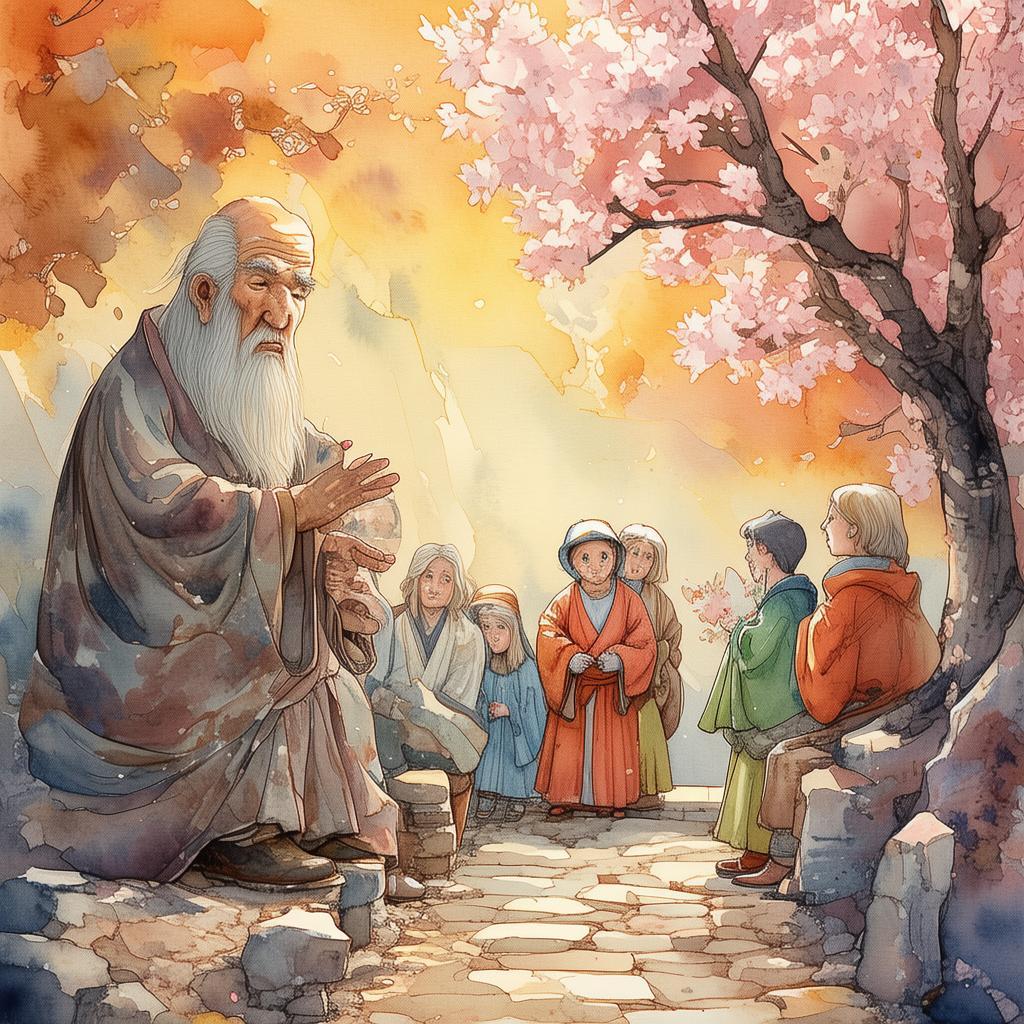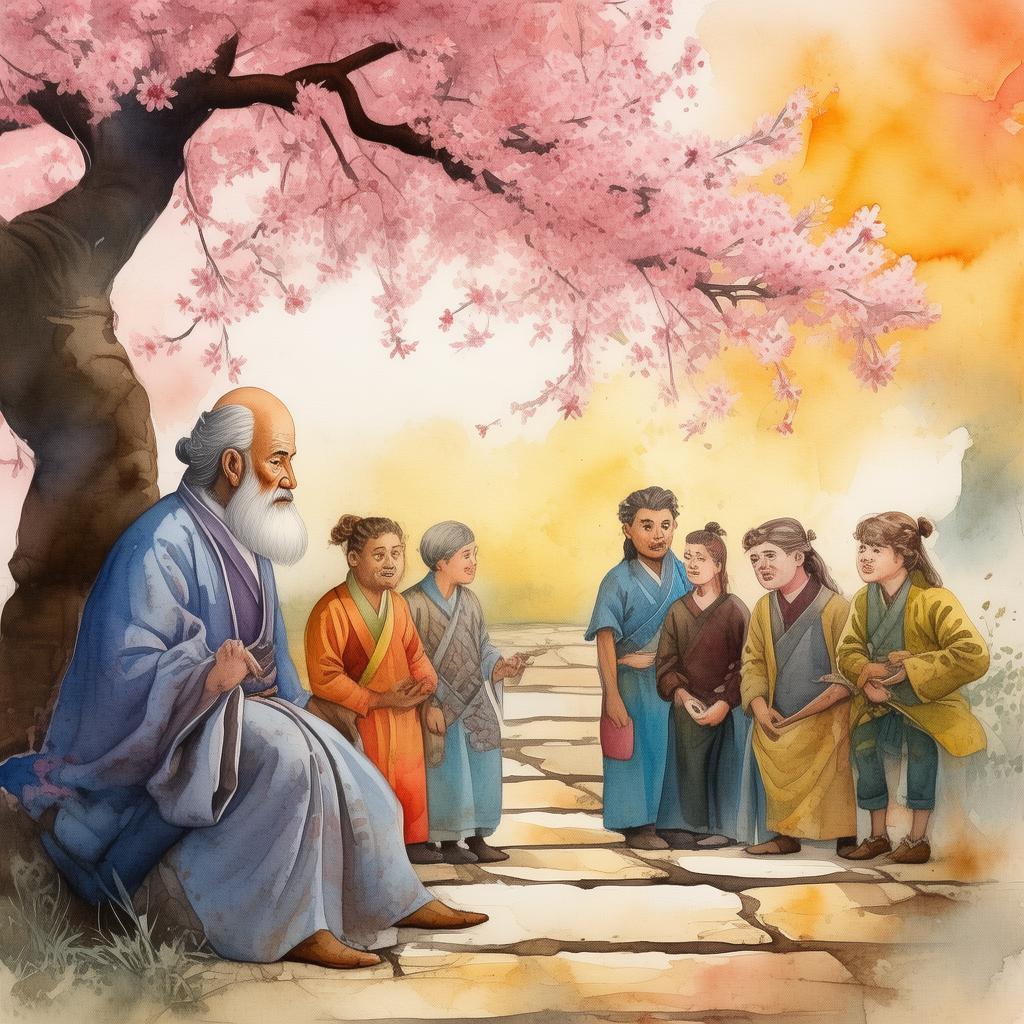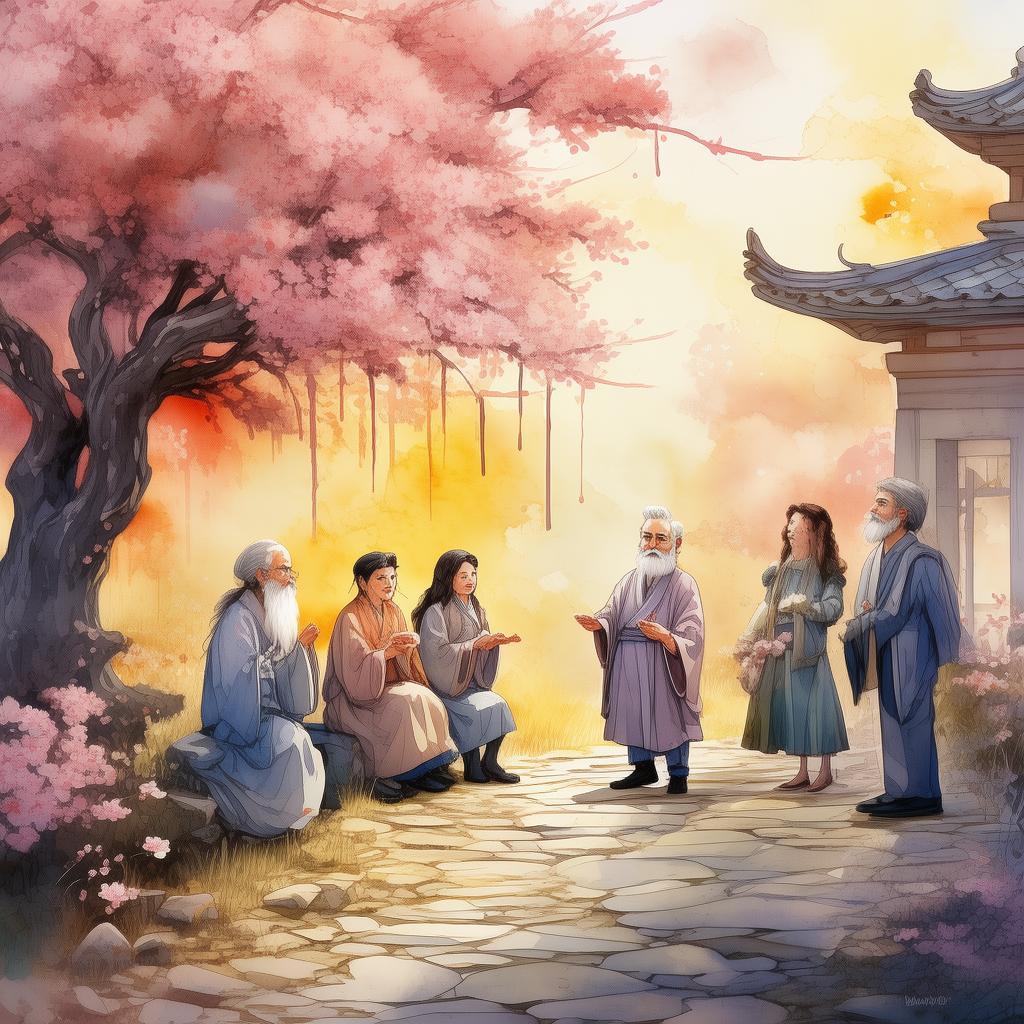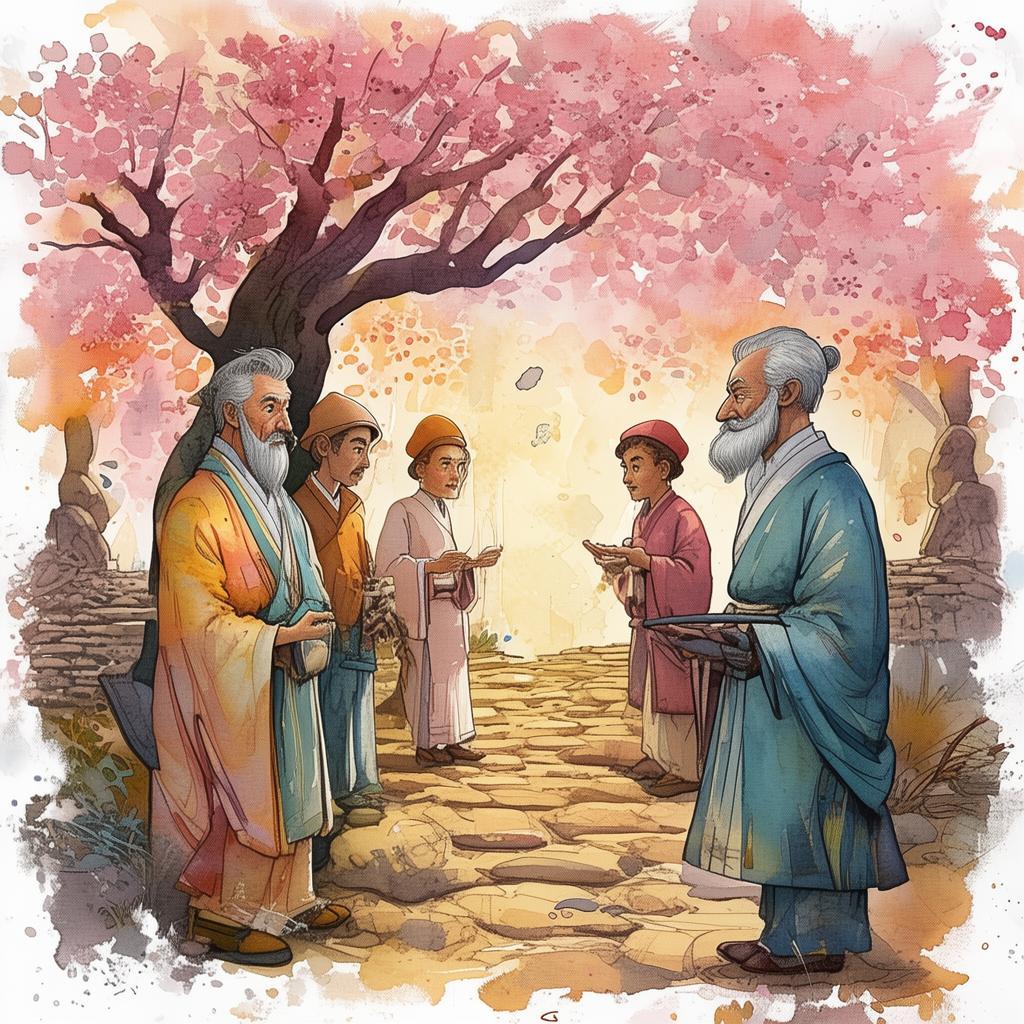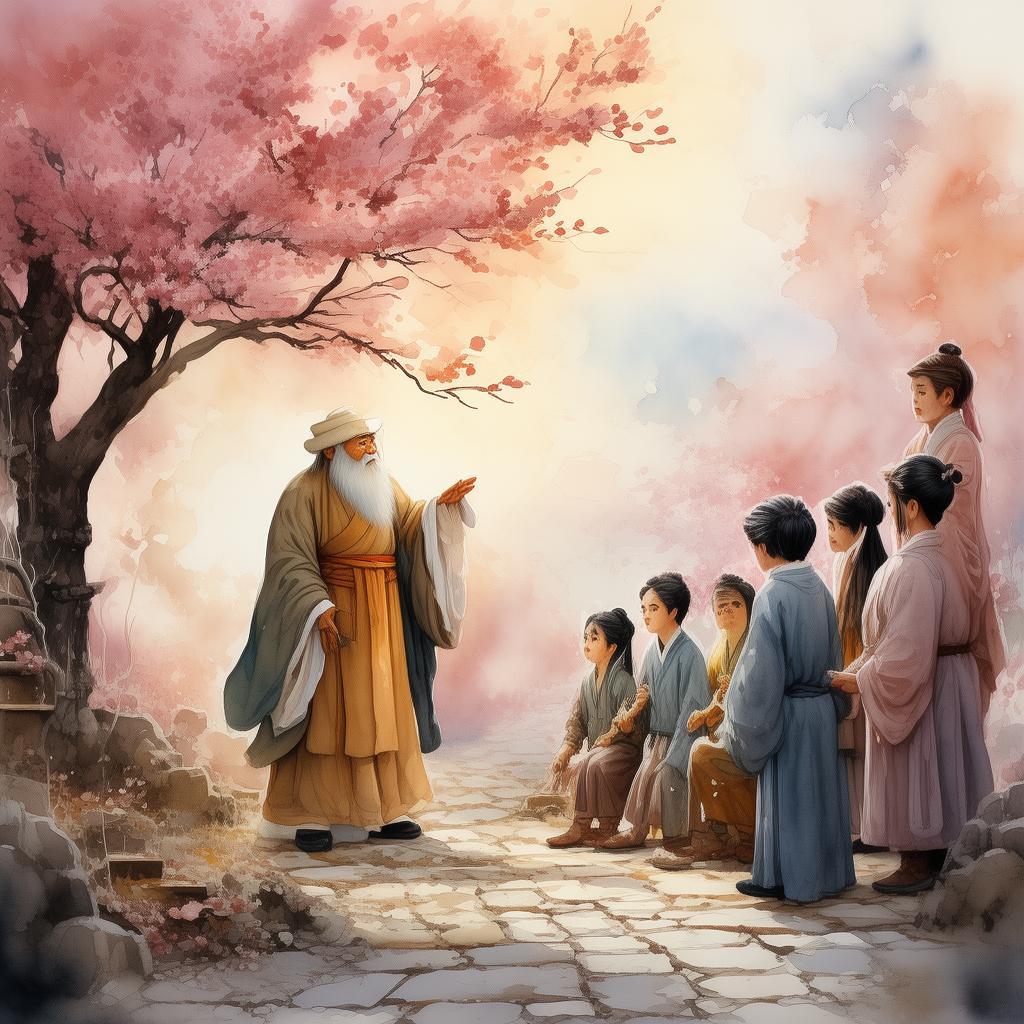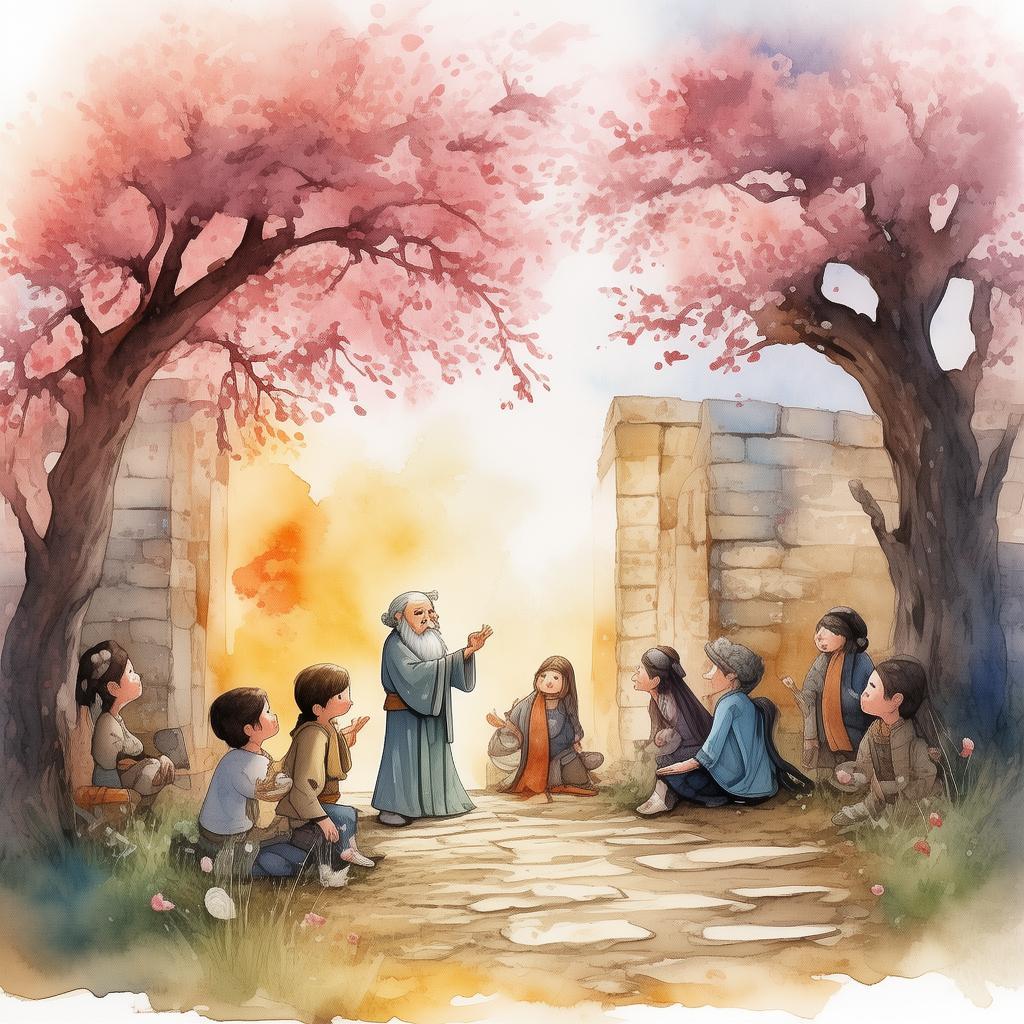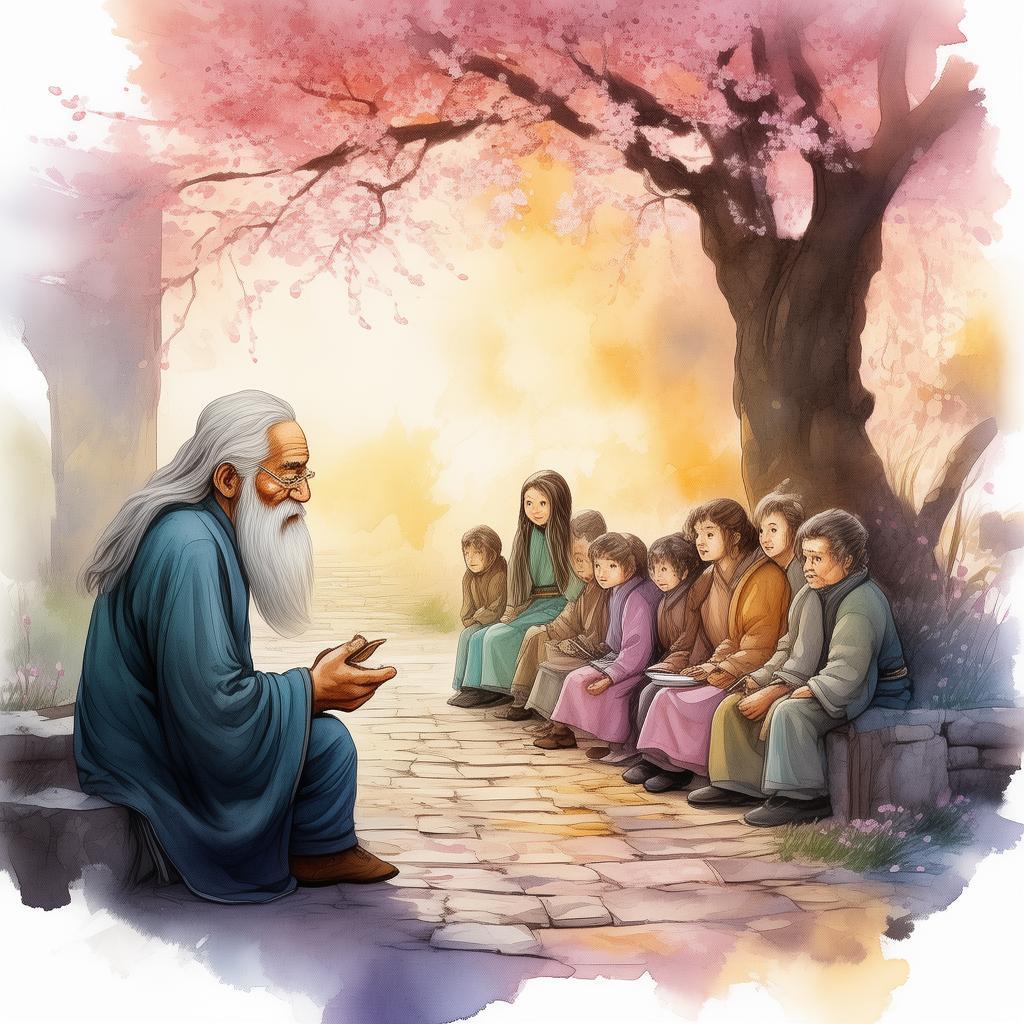The Seed of Self-Discovery: A Little Scholar's Quest for Inner Harmony
In the serene town of Jingyuan, nestled between rolling hills and whispering rivers, there lived a young boy named Ming. Ming was not your ordinary child; he was a kindergartner with a mind like a garden, full of untamed thoughts and dreams. His parents often marveled at the way he could see the world through the eyes of a poet, his words painting pictures of the most vibrant colors and his thoughts weaving tales of the most profound depth.
One day, Ming's teacher, Ms. Li, introduced him to the world of Chinese proverbs. She explained that these ancient sayings were like seeds, planted in the heart to grow wisdom and understanding. Among the many proverbs, one caught Ming's attention: "The garden of the mind is ever-changing, but the seeds of virtue are constant."
Ming was intrigued. He wanted to understand this garden of the mind and the seeds of virtue that were said to lie within it. He asked his parents, his friends, and even the old villagers about the proverb, but no one could give him a satisfactory answer. It was as if the proverb itself was a mystery waiting to be unraveled.
One evening, as the sun dipped below the horizon, casting long shadows across the village, Ming sat by the window, gazing out at the garden of his mind. He realized that the garden was not just a metaphor for his thoughts and feelings, but a reflection of his actions and character. He thought about the times he had been kind, the moments when he had been patient, and the instances when he had lost his temper. He realized that the seeds of virtue were the good deeds he had sown, and the garden was the result of those actions.
The next morning, Ming decided to embark on a journey to discover the seeds of virtue within himself. He started by practicing mindfulness, focusing on his breath and the sensations of his body. He learned to observe his thoughts without judgment, allowing them to pass like clouds in the sky. This practice brought him a sense of peace and clarity.
As the days passed, Ming began to notice changes in himself. He found that he was more patient with his friends, more understanding with his family, and more kind to the strangers he met. He began to see the world through a different lens, one that was filled with the beauty of compassion and the power of empathy.
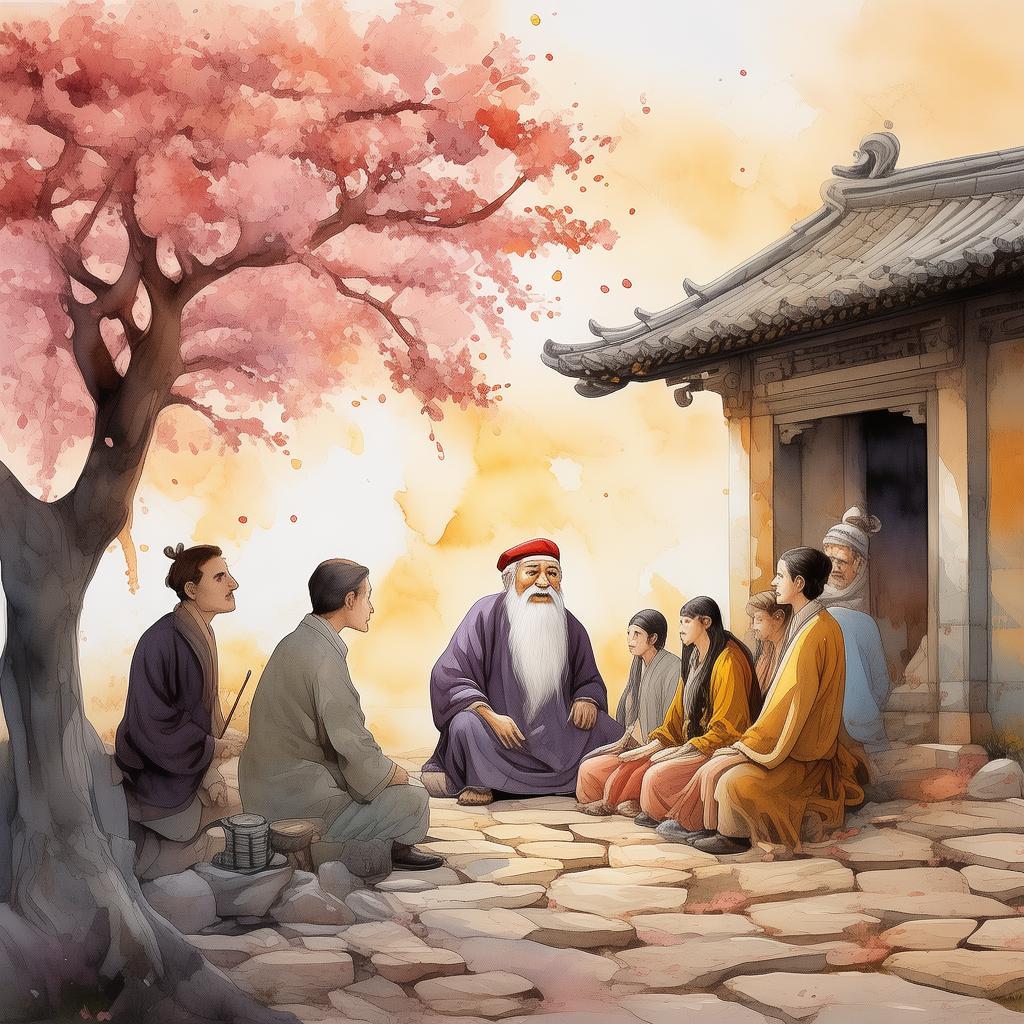
One day, while walking through the village, Ming encountered an old man who was struggling to carry a heavy load of firewood. Without hesitation, Ming offered to help. The old man was surprised, for in the village, it was rare to see a child so willing to lend a hand. "Why did you help me?" the old man asked, his eyes twinkling with gratitude.
"I wanted to plant a seed of virtue," Ming replied, his voice filled with conviction. "I wanted to show kindness and compassion, just as the proverb teaches us."
The old man smiled, a gentle warmth spreading across his face. "You have done well, young Ming. The garden of your mind is indeed ever-changing, but the seeds of virtue you have sown will grow and flourish, enriching your life and the lives of those around you."
Ming nodded, his heart swelling with pride and joy. He realized that the journey to self-discovery was not about finding the perfect garden, but about nurturing the seeds of virtue that lay within him.
As the seasons changed, Ming continued to grow and learn. He discovered that the garden of the mind was a journey of constant growth, where every action, every thought, and every feeling had the potential to bloom into wisdom and understanding.
And so, Ming's journey to self-discovery continued, ever-changing and ever-growing, like the garden of the mind itself. He learned that the seeds of virtue were not just a part of his character, but the very essence of who he was becoming.
In the end, Ming's story became a testament to the power of self-discovery and the beauty of the garden of the mind. It was a story that echoed through the village, inspiring children and adults alike to plant their own seeds of virtue and nurture them with love and care.
✨ Original Statement ✨
All articles published on this website (including but not limited to text, images, videos, and other content) are original or authorized for reposting and are protected by relevant laws. Without the explicit written permission of this website, no individual or organization may copy, modify, repost, or use the content for commercial purposes.
If you need to quote or cooperate, please contact this site for authorization. We reserve the right to pursue legal responsibility for any unauthorized use.
Hereby declared.
